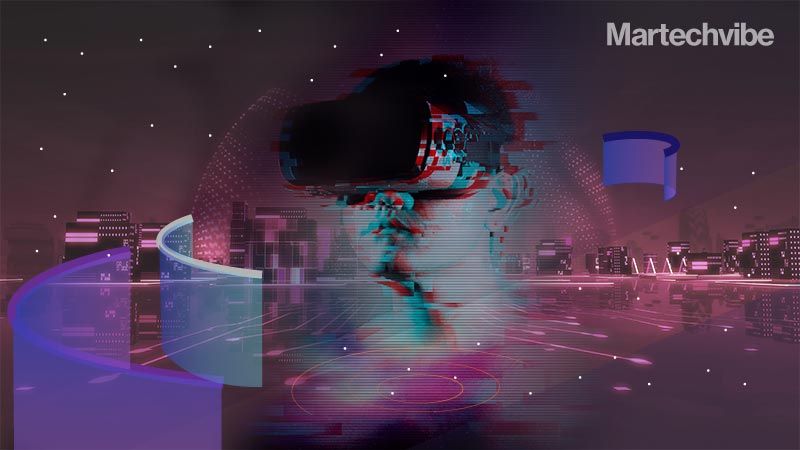Metaverse May Not Be The Promised Land
Metaverse promises to revolutionise the way users shop and socialise. But not everyone is optimistic. Virtual space with advanced gadgets that might one day allow people to smell, or even feel the products on the virtual shelf is hoped to be the metaverse. The virtual world is already on the path of a business-focused Web […]
Topics

Metaverse promises to revolutionise the way users shop and socialise. But not everyone is optimistic.
Virtual space with advanced gadgets that might one day allow people to smell, or even feel the products on the virtual shelf is hoped to be the metaverse.
The virtual world is already on the path of a business-focused Web 3.0 space. From land purchases and product launches to NFT trade shows and virtual concerts, marketers are luring customers to the virtual land, and metaverse investments are pouring in. Even brands like Walmart and H&M are exploring digital store experiences. A PwC study estimates the augmented reality (AR) and virtual reality (VR) economic output to cross $1.5 trillion VR and AR growth by 2030.
“Metaverse and Web 3.0 will merge to create new consumer behaviour and offerings. This is a game-changing moment for regional companies to automate and create a customer-centric eCommerce experience,” said Piyush Kumar Chowhan, Group Chief Information Officer, Lulu Group International.
Talking about the need to get metaverse-ready, Vishal Badiani, Creative Strategy Lead for MENA at Snap added, “As the Metaverse is still in its nascent stage, it is critical for brands to start developing efficient strategies that will help them stand out and create a unique presence for themselves in this new digital world.”
The marketing and advertising industry “The metaverse goes beyond traditional advertising towards creating brand experiences that are more engaging, thrilling, and less intrusive than those currently available through digital advertising. Metaverse travel and tourism solutions can significantly improve booking procedures by giving essential information that other methods cannot communicate appropriately. It gives marketers in the entertainment and tourism industry an upper hand,” said Waleed Al-Toukhi, Executive Director Sales and Marketing, Abdullah Al Othaim Investment Company.
Chowhan, Badiani, and Waleed are only a few among millions who anticipate a revolutionary change in the marketing and business industry with the onset of the metaverse. Even the data privacy expert Debbie Reynolds said that the metaverse will be huge.
Badiani added, “The first thing to do is to start investing in technology that adds value to customers right now, before they start demanding it. It will be important for brands to gather insights about their audience in relation to the metaverse, including understanding their interests and behaviours. This would help them lay their approach based on a new set of unique criteria and metrics.”
There is considerable chatter on the metaverse in recent times, and it can’t be ignored. But while many are optimistic about the virtual world, there are some who are cynical and find it to be misleading.
“The metaverse is not a new idea. As much as Mark Zuckerberg and his company would like to tell us that this is the promised future, it isn’t. We’ve had metaverse before. Maybe not with VR applications, but we’ve had metaverse and virtual worlds, and this is not a new concept. Meta’s motivations are pretty clear. The more you get people into a virtual system where you can measure and track everything, the more you can advertise to those people, and the better your targeting can get,” said Christopher Penn, co-founder and Chief Data Scientist, Trustinsights.ai.
Although the term became popular when Zuckerberg rebranded to Meta last year, solidifying the social media giant as being about the metaverse, it is not a new term. Two decades ago, writer Neal Stephenson had first coined it. And through the years, there are many companies that developed different forms of it.
While technologies such as Sandbox, Axie Infinity, Roblox, and Decentreland exist, the metaverse can be traced back to a virtual world developed by Philip Rosedale’s Linden Labs in 2003. Called Second Life, the virtual world allows users to explore, socialise and trade goods or services.
“Go back to the 90s, and you have Neal Stephenson’s science fiction novel Snow Crash that really fleshed out the metaverse. Go back to 2006, and you have the online game Second Life developed by Linden Labs, and I confess I spent an awful lot of time on it. Fast forward to worlds like Minecraft, we have a metaverse where there are transactions, buildings and open environments. And back then people were saying this is the future, this is it. This is where everything’s going to happen,” said Penn.
But the VR craze had fizzled out. Second Life had over 73 million accounts created since it launched and estimates of about 900,000 users. But after an exciting beginning, followed by an underwhelming response, Rosedale branched into other technologies like Spatial Audio. Now, with metaverse gaining popularity again, he is giving a second chance to Second Life, he announced in January.
Even advertising in the metaverse is not new. Years ago, Verizon’s Oath launched a programmatic display offering for virtual worlds, and Unity 3D, a game engine platform, offered a dedicated ad platform for fully immersive ad products to be served in XR games.
No wonder some marketers are wondering if metaverse is finally here to stay or just another short-term trend. That Meta’s market value plunged by $230 billion and its stock price dropped by 25 per cent recently as the company is -focusing on expanding metaverse projects, is not helping the concept to take off.
According to Penn, what brands should be thinking about right now is this:
– Does it amplify the inherent brand attributes?
– Would it attract your target audience?
– Is it the best way of marketing at the moment?
Recently, Heineken demonstrated metaverse madness in the best possible way. The company set up a virtual launch to promote a virtual drink as a joke. “We know that the metaverse brings people together in a light-hearted and immersive way, but it’s just not the best place to taste a new beer. This was a self-aware idea that pokes fun at us and many other brands jumping into the metaverse with products that are best enjoyed in the real world,” said Bram Westenbrink, global head of brand.
For instance, Nike acquired a virtual shoe company RTFKT, believing that it will serve both athletes and creators at the intersection of sport, creativity, gaming, and culture. Well, for how long?
There is also the challenge of metaverse-related devices. Mixed reality (MR) platforms, which make the foundation of the metaverse, come with a few challenges – expensive, uncomfortable, and can cause motion sickness. “Even though we’ve had VR adaptors to be able to generate virtual worlds, it still sucks as an experience,” added Penn.
“Right now, people have so much choice when it comes to content that it’s tough to get consumers to pick up anything new. The most scarce resource we have today, is attention. Expecting somebody to strap a headset on and invest hours is a massive ask. Yes, there will be some people, it’s their jam. And if those people are also your customers, then the metaverse is for you. The majority of the population, though, is probably not going to be hanging out there,” said Penn.
The reboot of the metaverse was most likely Zuckerberg’s latest effort to get people interested and invest in VR, especially after spending $2 billion for Oculus, the headset maker, in 2014. It might not assure success for Meta, but it scores top marks for marketing.
So, let’s just say the metaverse is a massive rebrand of a concept that offers stronger potential today with blockchain technology and the digital era in its favour. And marketers are hoping to create permanent value with a stronger customer experience. But will it succeed? Or fade away yet again? As they say, time will tell.
“If the concept takes off, it will take a long time to do that. For now, take all things metaverse with a grain of salt right now,” said Penn.
If you liked reading this, you might like our other stories
Metaverse in the Making
How Metaverse Is Changing The World of In-Game Advertising









































































































